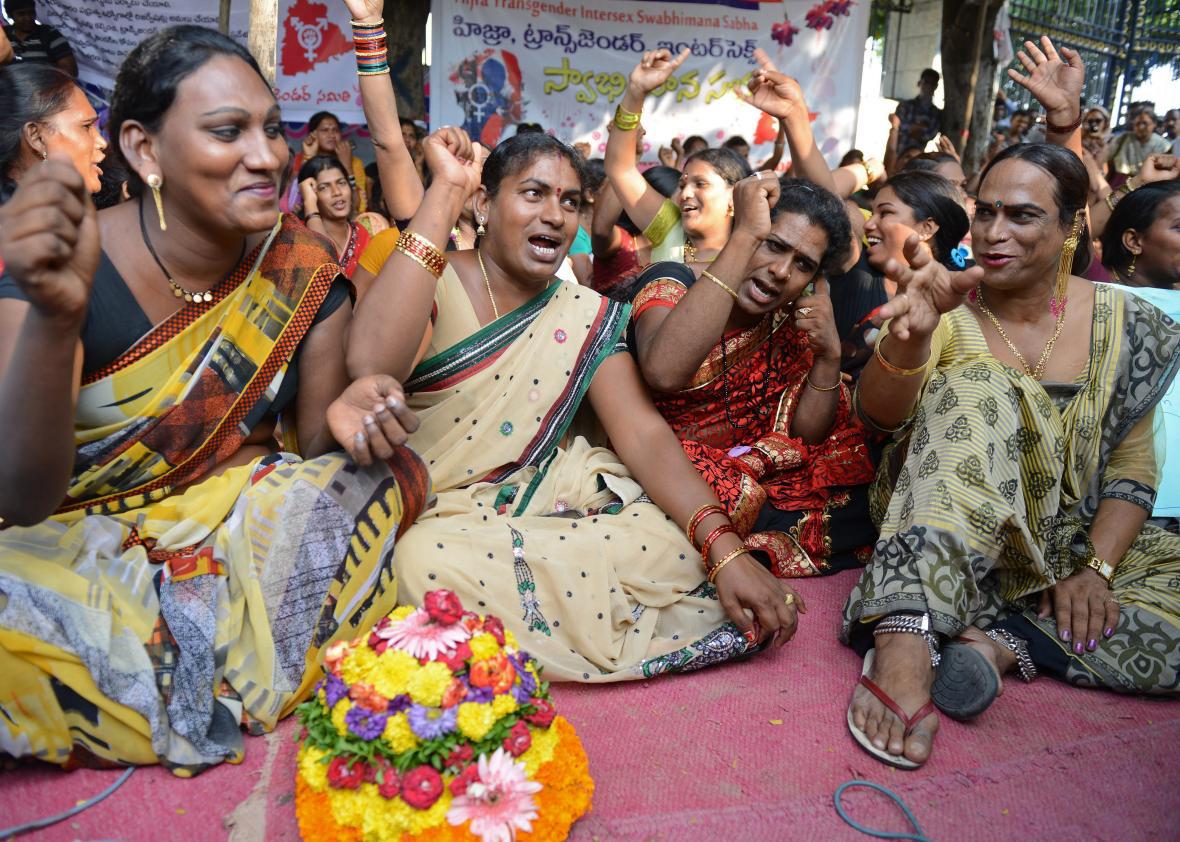France’s intersex population scored a major legal victory on Wednesday. For the first time, a French court recognized a third legal gender option, making the nation the second in Europe, along with Germany, to recognize a gender identity beyond woman and man.
The case was brought by a 64-year-old plaintiff who was assigned male at birth despite genitalia that presented as neither completely male nor female. “As a teenager I understood that I was not a boy. I didn’t have a beard, my muscles didn’t grow,” they told French commuter daily 20 Minutes. Their gender dysphoria became more acute when doctors gave them testosterone supplements at age 35: “My appearance became more masculine. It was a shock, I no longer recognized myself. It made me realize I was neither a man nor a woman.”
This new development will likely lower the incidence of largely unnecessary genital surgeries performed on infants whose bodies don’t match up with accepted gender standards at birth. In these instances, the decision to gender a child female or male—and adapt her or his genitalia accordingly—can be somewhat arbitrary, with consequences that may not surface until puberty. Adult intersex people have protested these surgeries, which seek to predetermine the child’s gender identity in one of two narrow ways and can interfere with sexual functioning later in life. With a third gender option, parents can opt to hold off until their children can decide for themselves if and how they’d like to surgically alter their genitals—a big win for intersex agency.
But enemies of the gender binary should postpone their victory party. The new category, termed “neutral gender,” only covers people born with ambiguous genitalia, who make up about 0.05 to 0.06 percent of the world’s population. A transgender or genderqueer French citizen who doesn’t identify as a man or a woman, but whose biological makeup conforms to either male or female standards, will be left with two unsatisfactory options.
Many of the world’s third-gender laws are underpinned by this kind of rigid biological determinism. In Germany, too, parents of children born with both male and female sex characteristics can leave the gender space on the birth certificate blank, thus labeling the baby “indeterminate.” When those kids are old enough to decide whether they want to keep that term or identify as a man or woman, they can choose to place an X on their passports in place of an M or an F.
Australia’s third-gender category, which was affirmed in the country’s highest court last year, is bound by bodily norms, too, albeit in a different way. The “non-specific” gender identification is only available to transgender people who’ve undergone gender affirmation surgery, which defies any sense of logic about the way gender works. That somebody who identifies as neither a man nor a woman (a sociological distinction, not a biological one) should be forced to change their body to conform to a different biological sex standard exposes Western society’s deep distrust of those who live unapologetically outside accepted gender norms.
Asian nations have been more progressive on this front. In India, citizens can register as “O”—for “other”—in the country’s voter rolls, and in Nepal, they can choose a third gender on passports and all citizenship documents. Pakistan and Bangladesh, too, recognize a legal third gender for people known as hijras. Both intersex and transgender people can claim the third option in these four countries.
But the world’s broadest definition of a third gender category comes from New Zealand. Its “gender diverse” legal identity includes transgender and intersex people, cross-dressers, drag performers(!), and non-binary gender identities recognized in Maori and indigenous Pacific island cultures.
All of these third-gender categories have been established within the past three years, which points to a heartening movement toward legal rights and social recognition for gender-nonconforming people. As other countries formalize more inclusive gender policies, they’d be wise to take New Zealand’s inclusive terminology as an example. France’s adoption of the “neutral gender” option will offer an important, affirming identity marker for many intersex people, but it further ensconces gender in biological terms, which officially invalidates transgender and genderqueer lives. A third gender that’s as strictly bound by bodies as the first two is a sorely wasted opportunity.
